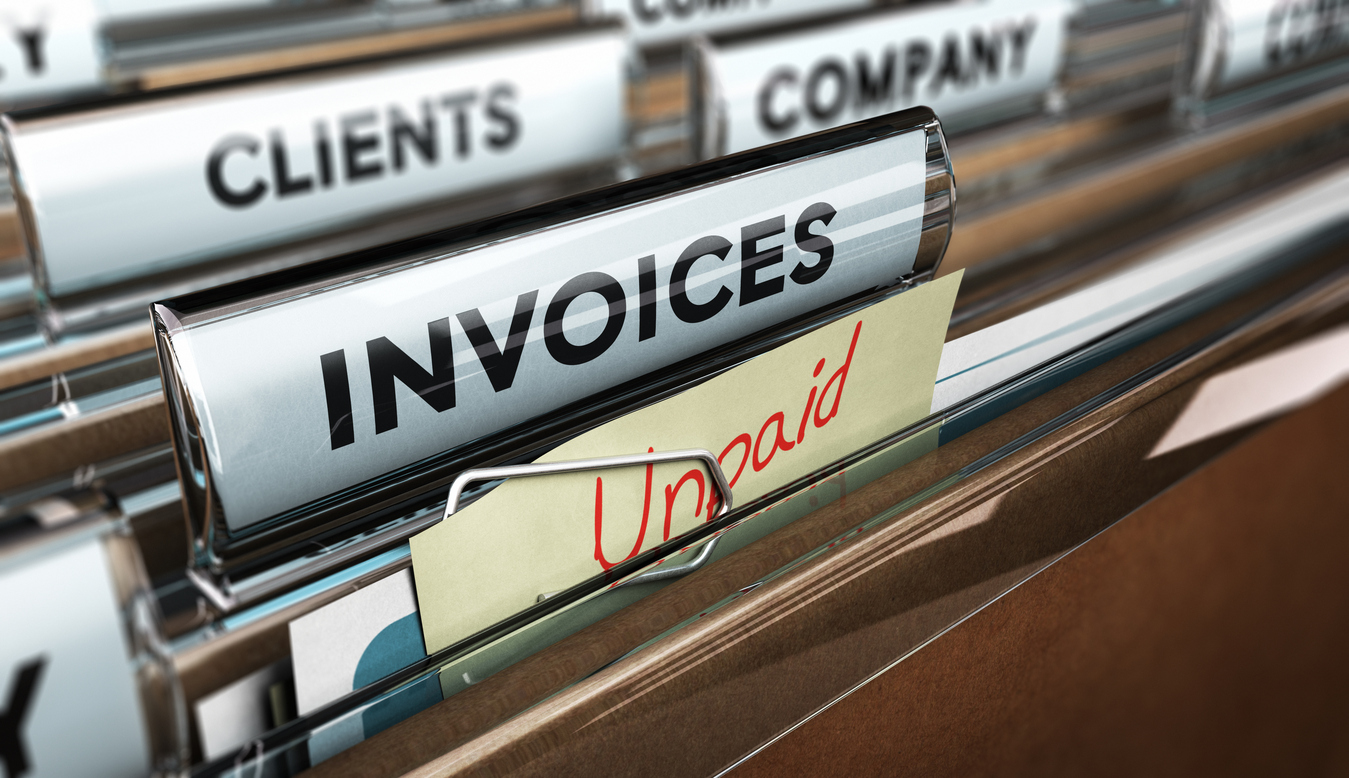There’s a good reason why many say money – not love – makes the world go round. The bottom line is the driving force for businesses across the globe and is the thing that ultimately makes or breaks a firm.
And for a lot of companies – particularly those in the service industry – their profit margins, pay packets and future-proofing relies on customers and clients paying their bills in full and on time.
Problems will invariably arise, however, and when they do it can mean a bill being paid late or payment not arriving at all. This can leave suppliers in a tricky situation.
So what can be done to help? Here, we explore the options open to companies finding themselves in this kind of sticky spot.

A £586bn problem
You’ve done the work for a client and billed them, but two weeks after setting your deadline you’re still waiting for payment. It’s a familiar situation many businesses face, especially SMEs.
Figures released at the end of last year showed UK SMEs are owed a staggering £586bn in unpaid invoices. The numbers, published by Lloyds Bank in October, also revealed that late payments were the biggest cause of cash flow problems – and 30% of firms surveyed expected such difficulties to become worse.
There are steps business owners can take to safeguard against such situations. Business experts advise checking a new customer’s financial situation before starting a relationship with them – Companies House and the Insolvency Register are two sources that can provide helpful data.
Sending a bill on time, giving customers a variety of payment methods and clearly setting out your terms and conditions are other ways you can help prevent late payment problems. Adding a personal touch, which SMEs can really capitalise on, is also advised – such as making your invoices friendly, relaxed and easily understandable.
Seeing red
Chasing an overdue bill is something a lot of us would rather avoid, as is the British way of trying to avoid awkward situations. But in business it’s a necessity, no matter how delicate the scenario.
If you are owed money after fulfilling all necessary steps, such as issuing reminders, you can take a more serious approach, including starting legal action.
The government advises trying mediation, whereby an impartial person trained to deal with two opposing sides helps try and bring both parties to a mutual agreement. This can cost a business money but it is often a cheaper option, compared to going through the courts.
If the legal route seems like the only viable path, and if mediation has failed, you can take your case to the small claims court. This court can order the money to be paid.
A statutory demand is another option, through which you can ask a person or business for money. If they ignore your demand or can’t repay you, you can take them to court and make an individual bankrupt or get a company liquidated in order to get the cash owed to you.
Prevention better than cure
As already discussed, there are steps a business can take to prevent it from having to take such extreme measures – and employing a bookkeeper can provide an additional layer of armour to protect your business and its finances.
At AMR we provide a robust, but fair, credit control service. We know the importance of good communication and keep our clients informed of sums coming in and successful overdue bill payments.
We also know that every business is different and can tailor our credit control services, depending on which of your customers we are dealing with.
If you want to be rid of the hassle of bill chasing, or need advice about claiming an overdue payment, we are happy to help. Call us on 01892 559480 or fill in our contact form and one of the team will get back to you.







